Christian Tetzlaff, Lars Vogt, Wigmore Hall review - lyrical Brahms from veteran duo
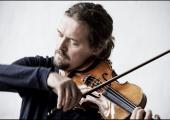

Even given the peerless standards already set by Sakari Oramo and the BBC Symphony Orchestra in their Sibelius cycle, this instalment was always going to be the toughest, featuring the most elusive of the symphonies, the Sixth, and the sparest, the Fourth. As it turned out, all challenges were met with Oramo's characteristic mix of energy and sophistication, and the interloper, Swedish composer Anders Hillborg's Second Violin Concerto in its UK premiere, saw to it that Lisa Batiashvili carried the flame.
Was it going to be generic contemporary? The skeetering strings at the beginning suggested as much. But their headlong collision with a chorus of sustained chords proved arresting: what sounded like a pre-recorded ambience turned out to be those same strings turned to calm seas. In effect much of the one-movement concerto was searing cadenza from the compellingly intense Batiashvili (pictured below with Hillborg, Oramo and members of the BBC Symphony Orchestra by Mark Allen), mostly accompanied until close to the end and punctuated by two wild eastern dances – part Turkish sanat, part Bollywood, with Hillborg making and needing no apologies for the populism.
The intensity held; the ear was led through ever-unexpected harmonic shifts, and where the work might have sagged, the two oboes and cor anglais introduced a mesmerising new hook. Filmic in effect, but never merely film music. Given the echo of Bach's D minor Sarabande near the start, the ethereal encore was entirely appropriate – Hillborg's arrangement for violin and strings of the organ prelude on the chorale "Ich ruf zu Dir".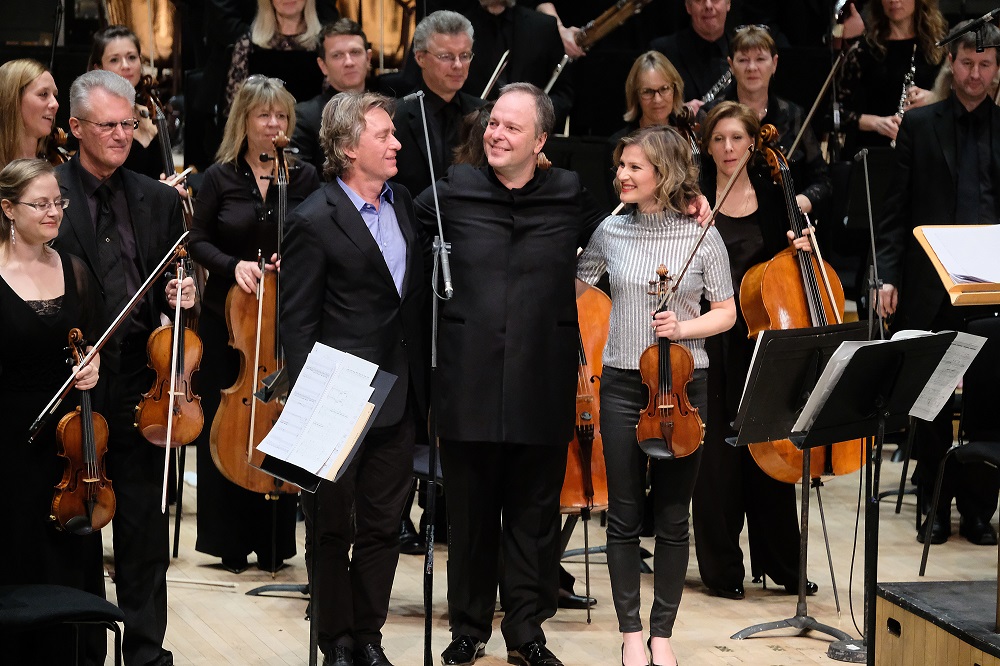
Though the Fourth could hardly be further away in its slow-evolving dark power, the hallmarks of these interpretations remained: the powerfully-vocalised wind solos (flautist Michael Cox especially impressive), the simultaneous projection of upper, middle and bass layers, all doing their own distinctive thing, and the way Oramo sustains a line or an argument even when it's punctuated by long silences. The high watershed both of Sibelius's unique tragedy among his symphonies and of the playing came in the great slow movement, heroically trying to piece itself together out of numb, depressive fragments. It's the cellos who finally, gradually manage to give full voice to a cathartic lament. That climb of theirs out of the darkness last night will stay with me for ever.
Next page: watch Lisa Batiashvili with Sakari Oramo conducting the Royal Stockholm Philharmonic in the 2016 premiere of Hillborg's Second Violin Concerto
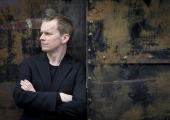
Only connect.
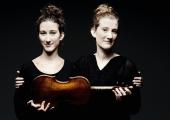
I remember very well the first time I read Swann’s Way, the first part of Marcel Proust’s monumental masterpiece, In Search of Lost Time (À la recherche du temps perdu). I was struck not only by the depth and beauty of the novel, but also the crucial role that music played in the narrative.

Singing students from the Guildhall School should have been issued with a three-line whip to fill the inexplicably half-empty Milton Court concert hall for last night's charmer. After all, every musician, and not just sopranos, should know that this is how it ought to be done. True, an effervescent personality like Lucy Crowe's can't be simulated. But every other respect of her stunningly sung and varied Mozart can be aspired to: the relaxed, natural stance (and in this instance, knowing how to play a recalcitrant shoe heel for comedy), knowing what to do with the hands, how to execute coloratura as spine-tingling expression, not mere display, how to spin long lines and to colour the music according to the situation, with the right dramatic looks and widening of the eyes to match.
True, this was culinary Mozart of the sort to make E F Benson's Lucia and Georgie affectedly exhale, two-thirds of it composed in his teens, but as with Donizetti and Bellini, when you have supreme stylists in charge, it all commands attention. There are no better period-instrument players around than Harry Bicket's band, and though the dry acoustics didn't help them out in the way that the Wigmore Hall would in the frothiest of Mozart's early Divertimenti, the D major K136 with the already-vintage humour of its six-note finale kickoff, the pleasures came thick and fast. Mozart's inner string lines were full of life and interplay, runs clean and bright.
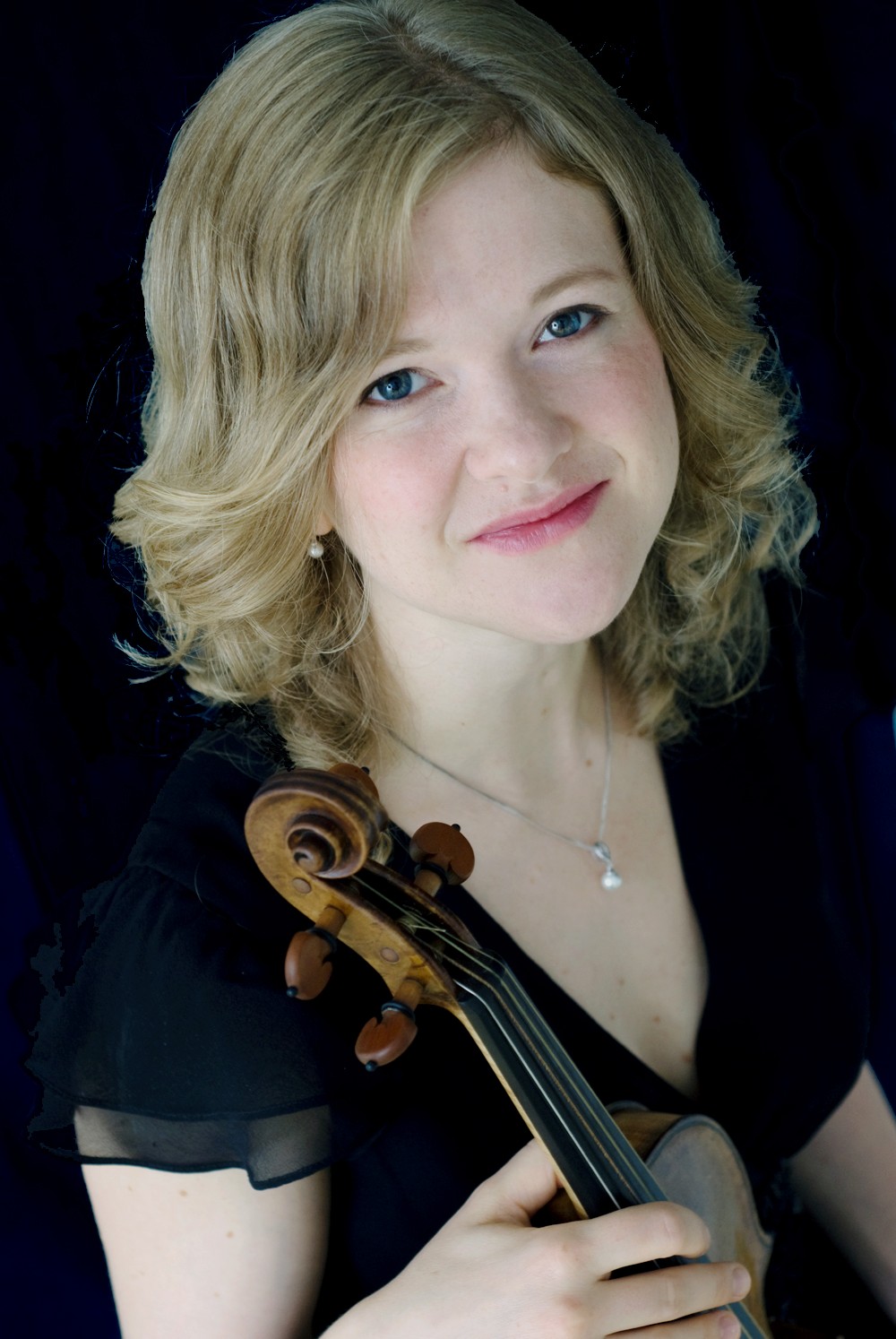 The orchestral counterpart in the concert's second half, the A major Violin Concerto K219 with its rollicking "Turkish" rondo episode, brought another pleasure of collaboration. The English Concert's leader, Nadja Zwiener (pictured left), may not be a born soloist with the kind of panache that Isabelle Faust brought to the even slighter G major Concerto at the Proms, and in her first entries she had a bit of an intonation problem as well as less than perfect ornamentation. But the Adagio shone with such a rare consonance between violinist and orchestra, the sort of thing that star players flying in for one rehearsal can't achieve, and by the finale, with aforementioned romp both clearly articulated, with none of the usual rushing, and laugh-out-loud exuberant, we were back to the level of what Crowe had already achieved with Bicket and co (the conductor-instrumentalist pictured below by Richard Haughton).
The orchestral counterpart in the concert's second half, the A major Violin Concerto K219 with its rollicking "Turkish" rondo episode, brought another pleasure of collaboration. The English Concert's leader, Nadja Zwiener (pictured left), may not be a born soloist with the kind of panache that Isabelle Faust brought to the even slighter G major Concerto at the Proms, and in her first entries she had a bit of an intonation problem as well as less than perfect ornamentation. But the Adagio shone with such a rare consonance between violinist and orchestra, the sort of thing that star players flying in for one rehearsal can't achieve, and by the finale, with aforementioned romp both clearly articulated, with none of the usual rushing, and laugh-out-loud exuberant, we were back to the level of what Crowe had already achieved with Bicket and co (the conductor-instrumentalist pictured below by Richard Haughton).
Our great soprano didn't make it easy for herself, plunging in with Aspasia's ferocious first aria in Mitridate re di Ponto. If Crowe had been singing this role rather than the less rewarding one of seconda donna Ismene at Covent Garden, that musically rather ordinary evening might have come up to the mark of this one dazzling performance. More brilliant still was "Ah se il crudel periglio" from Lucio Silla, with its unbelievably well-executed runs in the recap.
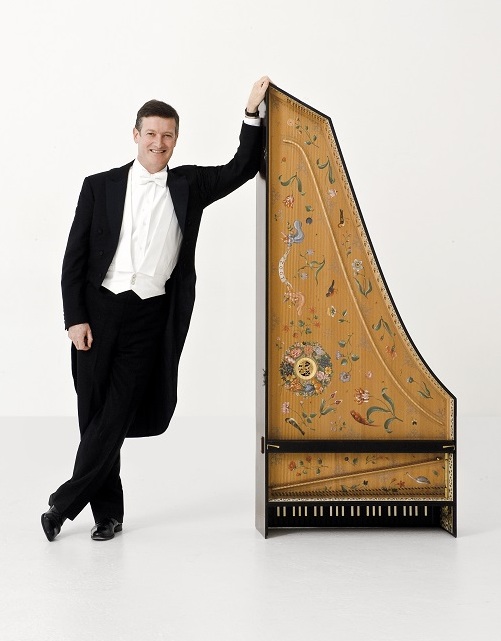 The necessary breather in between was the lovely "Ruhe sanft" from Zaide, Crowe touching and perfect of legato phrasing in dialogue with Katharina Spreckelsen's cool oboe obbligato. The maturity of Mozart begins to shine through here in the extra beauties he finds in the instrumental coda, and by the time of the "Et incarnatus est" from the great but unfinished C minor Mass, we are in vintage territory with not only that effortlessness of vocal writing but also the woodwind ensemble, enriching what becomes a kind of quartet-cadenza of melting beauty.
The necessary breather in between was the lovely "Ruhe sanft" from Zaide, Crowe touching and perfect of legato phrasing in dialogue with Katharina Spreckelsen's cool oboe obbligato. The maturity of Mozart begins to shine through here in the extra beauties he finds in the instrumental coda, and by the time of the "Et incarnatus est" from the great but unfinished C minor Mass, we are in vintage territory with not only that effortlessness of vocal writing but also the woodwind ensemble, enriching what becomes a kind of quartet-cadenza of melting beauty.
Crowe also made the heart flip in the simpler, solo cadenza at the heart of "Exsultate, jubilate". Each time I've heard her sing it, not a note or a phrase has been out of place, and this was on the same level as last year's glorious performance with David Bates and La Nuova Musica. The bonus proved simply sublime, making the eyes prick as the earlier numbers could not: as Bicket pointed out, Mozart by the end of his life knew how to say with 40 bars what had earlier taken him 200, and with Crowe bringing extra fullness of tone to what is usually just a pretty arietta, Servilia's "S'altro che lagrime" from La Clemenza di Tito, we all too few in the audience came out knowing we'd heard the best that singing in concert has to offer.
Next page: watch Lucy Crowe sing 'Exsultate, jubilate' at the 2016 Proms
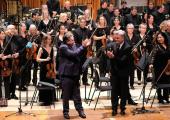
Julian Anderson’s 50th birthday this year was the prompt for the latest of the BBC’s Total Immersion days, devoted to the work of a single contemporary composer. I have long been a fan of Anderson’s music since hearing the marvellous Khorovod in the 1995 Proms, but, after a couple of recent blips – I was not so keen on the opera Thebans or the recent Piano Concerto – I was ready to have my admiration re-awakened. And, in large measure, it was.
Last night was one of those rare occasions when I'd rather have heard Respighi's gaudy-brilliant Roman Festivals than Brahms's Violin Concerto. It wasn't just that concerts like Charles Dutoit's 2014 Prom had shown us that the Italian's Roman trilogy can actually work as a sequence when Riccardo Chailly was offering us only two of the three.
Everything you may have read about Mirga Gražinytė-Tyla's wonder-working with her City of Birmingham Symphony Orchestra is true. Confined to a Turkish hospital bed when their first Prom together took place last August, I wondered from the radio broadcast if the extremes in Tchaikovsky weren't too much. In the live experience last night, the miracle of the detail and the justification for even the most startling decisions proved totally convincing.
The message must be getting through. On the First Night of the Proms, Igor Levit played as encore Liszt's transcription of the great Beethoven melody appropriated as the European Anthem; in Prom 2, Daniel Barenboim unleashed his Staatskapelle Berlin on Elgar's Pomp and Circumstance following an inspirational speech about European culture, education and humanism. Yesterday afternoon's manifesto was a given, showcasing the finest of all European bands under a Dutch citizen of the world who resided for many years in London. Bernard Haitink is also the world's greatest living Mozart conductor now that Mackerras is no longer with us - and at 88, his baton technique and his nuancing are more focused than ever in the love and passion they inspire.
You might argue that the Chamber Orchestra of Europe could play the programme in question without a conductor. But Haitink (pictured below) fine-tuned the dynamics in Mozart's "Prague" Symphony, No. 38, adding many more than are in the score, with a notably magical dimuendo back into the first-movement recap, and added his own subtle sense of space throughout, starting with the end of the slow introduction.
All repeats cried out to be heard with playing as hyper-alert and well sprung as this - and especially in Mozart's Andante, which Haitink now, surely, conducts more swiftly than he used to, making it a deeply expressive kind of minuet in a three-movement symphony where that ritual is officially missing.The woodwind playing was predictably both cultured and vivid, from Kai Frömbgen's very personal oboe solos to Clara Andrada's flute loudly protesting against the sudden ensemble rudeness at the heart of the finale.
Mozart's ubiquitous Third Violin Concerto might have seemed one-dimensional after that, a nice little exercise in 18th century gallantry, but not with another peerless artist, Isabelle Faust (pictured below), who as one-time COE member had to join her fellow violinists in the opening tutti. If from a distance in the Albert Hall you had to lean in to catch the nuances, that's no bad thing; and Faust's vibrato-light line in the Adagio was a delight. So was her choice of startling cadenzas by her frequent duo partner, pianist Andreas Staier, the last introducing a repeated pizzicato in homage to Mozart's use of it in a belated rondo-theme and carrying it over into the final fun and games.
No doubts, either, about any aspect of Schumann's Second Symphony – not an obvious second-half work – could possibly remain in an air-treading performance like this. The much-derided orchestration seemed perfect, with low horn notes cutting as much as the rest of the orchestra through the Albert Hall vasts. Haitink convinced us that this is one of the most miraculous scherzos ever written, so deft and sleight-of-hand in its transitions that you really wanted to applaud it and even call for an encore, as they did of old mid-symphony. The actual bonus, then, was apt, perfection again: the most gossamer-light dance through the Scherzo from Mendelssohn's incidental music to A Midsummer Night's Dream, proving that Haitink at 88 is still an ageless Puck at heart.
Next page: watch Daniel Barenboim's inspiring pro-European speech in Prom 2
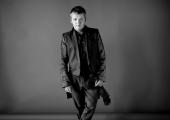
Tears were likely to flow freely on this most beautiful and terrible of June evenings, especially given a programme – dedicated by Vladimir Ashkenazy to the victims of the Grenfell Tower fire – already prone to the elegiac. It could hardly be otherwise with the music of Elgar and Sibelius, two Europeans with a penchant for introspection whose works Ashkenazy knows well.